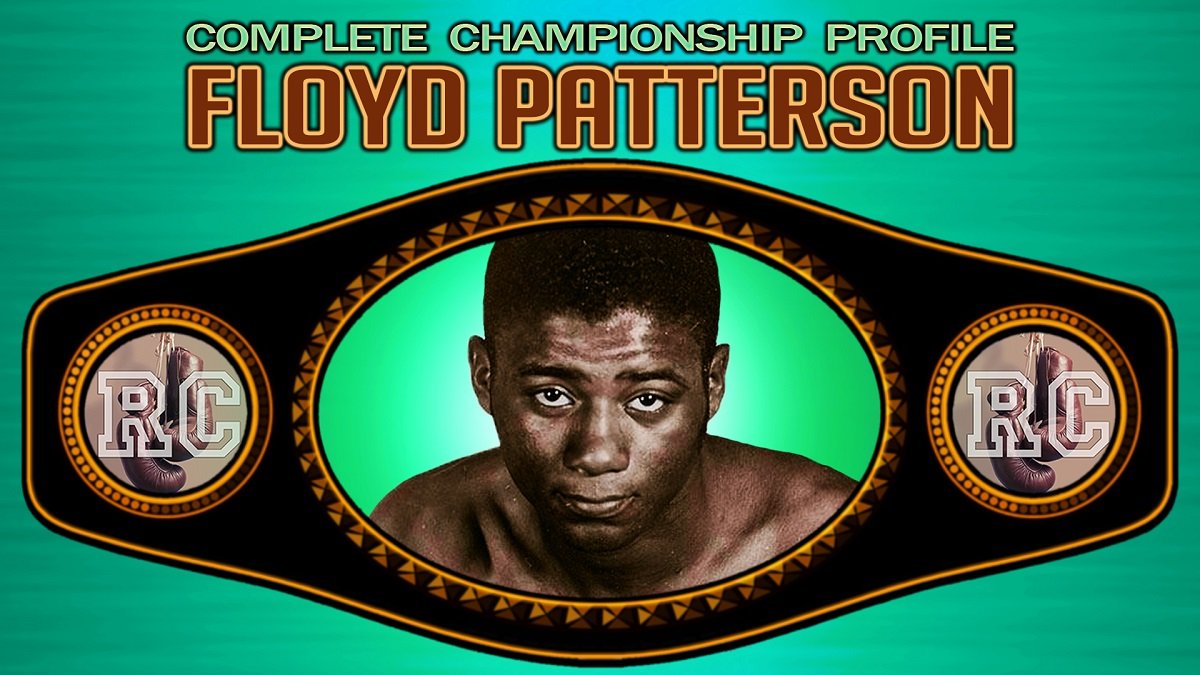Had he lived into grand old age, Floyd Patterson would be celebrating his 89th birthday today. Patterson, a most fascinating figure, a man who, though a great fighter, was shy and insecure, had some incredible ring career. Born in Waco on this day back in 1935, Patterson, despite rarely if ever weighing more than 180 pounds – this of course diminutive for a heavyweight, an unimaginably low poundage for a heavyweight these days – fought so many heavyweight giants.
Muhammad Ali (twice), Sonny Liston (twice), Jerry Quarry (twice), Ingemar Johansson (thrice) and fellow natural 175 pounder, Archie Moore. Patterson engaged in memorable fights with the above fighters and more. After winning Olympic gold as a middleweight in 1952, Patterson, who had only been an amateur boxer for three years before winning gold, went pro. Just 16 years old and having been spotted by Cus D’Amato, Patterson went 13-0 before he lost a decision to former light heavyweight champ Joey Maxim.

With D’Amato’s plan being for Floyd to win the world heavyweight title, this despite his light heavyweight stature, Patterson earned his shot by beating Tommy Jackson via 12 round split decision in June of 1956. The great Rocky Marciano had retired, and Patterson was matched with former 175 pound king Archie Moore for the vacant crown. After five one-sided sessions inside Chicago Stadium, Patterson made history by becoming, at age 21, the youngest heavyweight champion ever.
Patterson, who was lighting fast and ever so agile, with him also packing a real punch, would go on to make additional boxing history.
After making four title retentions (one of them against debutant Pete Rademacher), Patterson suffered an almighty upset at the hands of Sweden’s Johannson. Felled some seven times during the short, extremely violent fight, Patterson was KO’d in the third. And he was devastated, to the point of going into hiding. The rematch took place a full year later and Patterson, having lived like a monk and trained like a trojan, was determined to make up for the way he’d ‘let the people down’ in the first fight.
Patterson scored a leg-twitching KO in the fifth round, his ‘Gazelle Punch’ wiping Ingo out in brutal fashion. The first man to regain the world heavyweight title, Patterson said that this was the proudest moment of his career. In the rubber-match, which came in March of 1961, Patterson took some hurt before stopping Johannson in round six.
Then, after a retention against Tom McNeeley, Patterson could swerve #1 contender Sonny Liston no longer. Against D’Amato’s advice, Patterson signed on to defend against the terrifying, intimidating Liston, and just like that, Patterson was blasted out inside a round. Patterson must have known he had next to no chance of avenging the loss, but he fought Liston again, with him again being stopped in the opening round.
This could have been the end, but Patterson, who genuinely loved fighting, with the ring being the place where he expressed himself best, boxed on. For almost ten years.
Patterson never managed to become the first three-time heavyweight king, but he sure gave his all in trying. Patterson defeated George Chuvalo in a great action fight in February of 1965, before he challenged Ali in November of that year. Patterson entered the ring with an injured back and he was a sitting duck for the new ruler, a man who was even faster than he was. Patterson took a terrible beating, being stopped in the 12th round, with the ‘cruel’ Ali being severely criticised for being a bully afterwards (one writer writing how seeing Ali’s toying of the game but outgunned Patterson was akin to “watching a boy pull the wings off a butterfly.”)
Patterson, who had taken a disguise with him into the Liston rematch and would often hide from public view if he lost a fight, was famously shunned by Frank Sinatra after the Ali hammering; Sinatra having picked Floyd to win, with Patterson later attempting to apologise to Sinatra as he sat in his Vegas suite.
Patterson wasn’t done yet, though. A KO win over British hero Henry Cooper came in Floyd’s next fight, before he engaged in two hard, close fights with Quarry, Patterson getting a draw in the first fight and then losing a majority decision in the return. Then, with the two heavyweight titles up for grabs as a result of Ali being stripped for refusing to serve in the Vietnam war, Patterson came so close to becoming the WBA champ, with him instead dropping a controversial 15 round decision to Jimmy Ellis.
A good win over Oscar Bonavena came in February of 1972, before Patterson got a non-title rematch with Ali. Despite being stopped five rounds quicker this time, Patterson acquitted himself better. Still, Ali was just too good for Floyd. And that was it for Patterson, although he never officially announced his retirement.
After hanging up the gloves, Patterson guided his adopted son, Tracy Harris Patterson, to a world title in the 1990s, while Floyd became chairman of The New York State Athletic Commission, with him serving two terms. Sadly, in 1998, pretty much out of nowhere, Patterson’s short-term memory failed him, with him suddenly, and frighteningly, being unable to remember the names of people he had known for years.
Patterson resigned his post and he was later diagnosed with Alzheimer’s disease, and later prostrate cancer. The first two-time heavyweight champion of the world who carried so much mental baggage with him into the ring, passed away in May of 2006, aged 71.
To this day, Floyd Patterson holds a special place in the hearts of many fight fans.
Floyd was inducted into the International Boxing Hall of Fame in 1991. Final ring record: 55-8-1(40). Heavyweight champion of the world from November of 1956 to June of 1959, and again from June of 1960 to September of 1962.
